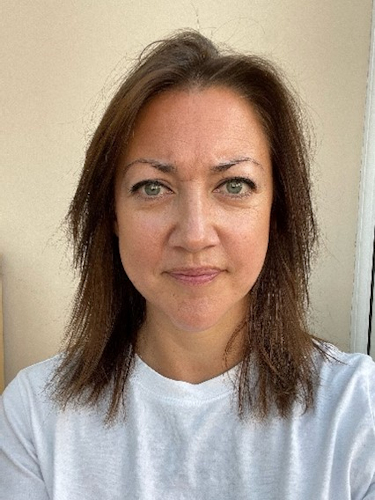
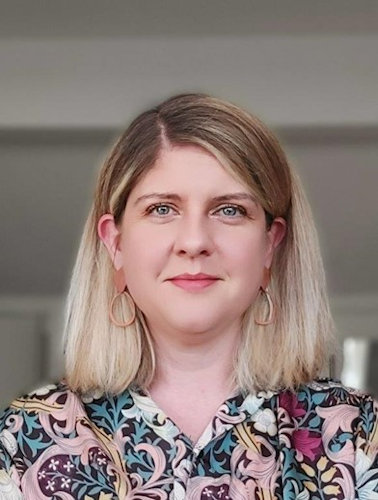 Hello, we are Jess and Jo and we work in suicide prevention across West Yorkshire.
Hello, we are Jess and Jo and we work in suicide prevention across West Yorkshire.
Thanks for giving us this opportunity to convey this week’s leadership message – it comes with a bit of a trigger warning, as it’s about suicide. It also comes with a reminder that the Suicide Bereavement Service is here for all of us, including staff in health, care and beyond, regardless of employer. We know that there are lots of us who have experienced the pain and impact of suicide loss, including family members, colleagues, friends, patients – please do get in touch with the service.
Through this message we want to honour every one of the 281 people whose deaths were registered as suicides in West Yorkshire last year. The counts and rates are too high – all of our places, except for Bradford, have rates higher than the England average.
West Yorkshire Health and Care Partnership has already agreed a five-year Suicide Prevention Strategy 2022 – 2027 which complements our five existing local authority area strategies and plans.
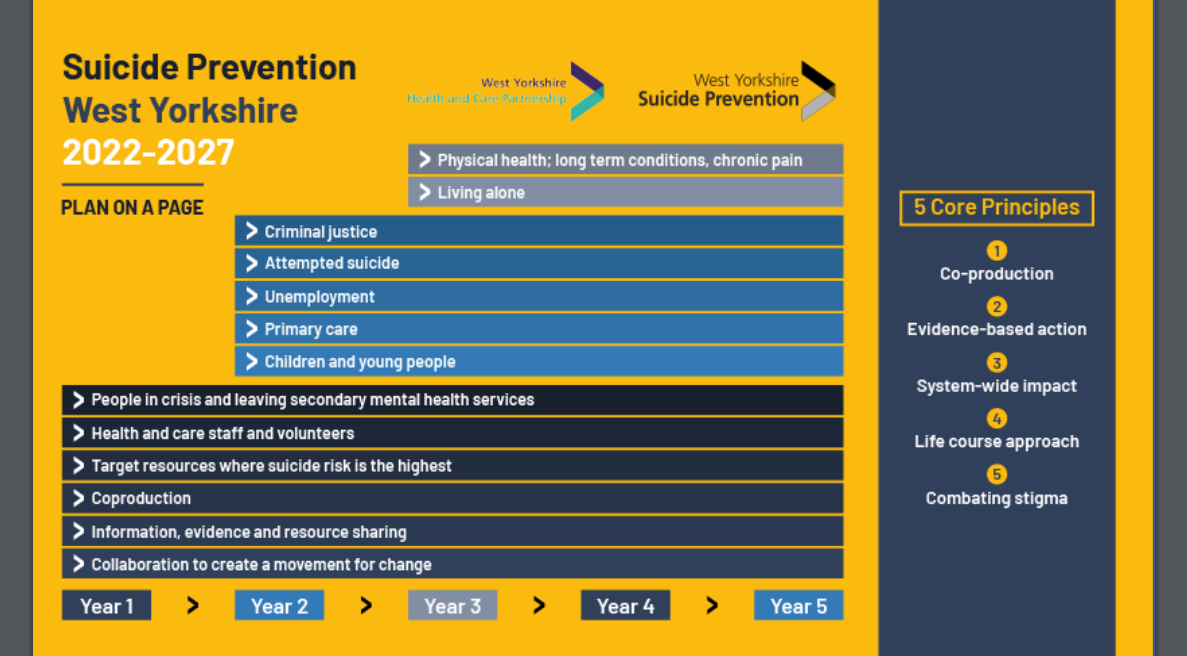
We believe that suicide is preventable and are proud we have adopted a zero-suicide approach. Bringing the suicide rate down continues to be one of our 10 big ambitions as a Health and Care Partnership.
One of the challenges is knowing where our collective work has made a difference. It is difficult to know, let alone quantify, when we have saved a life by preventing suicide, but we know this happens across West Yorkshire day in and day out.
Suicide prevention happens over the course of an individual’s life – for example in infancy through safe attachments; in schools through positive approaches to issues such as bullying, self-harm and online harm; in communities in preventing isolation; in healthcare settings through the compassionate support for people with physical health conditions and pain; in mental health settings through early intervention, safety planning and compassionate crisis support; in general practice and throughout primary care; in the criminal justice system; through public heath work such as on gambling harms; in the voluntary sector; food banks; in the workplace with employers; in communities and in our streets and families. Across West Yorkshire, we are preventing suicide.
But who is responsible for widening the momentum and creating a movement for change? How can we turn the curve and bring the suicide rate down? The only way we can do this is to make suicide prevention everyone’s business and a core part of every organisation’s plans and performance framework. We have made some progress, but now need to start with a whole-system paradigm shift. The aspiration is for suicide prevention to be a feature of every organisation’s business as usual practice, in the same way they would approach fire safety or having a first aider.
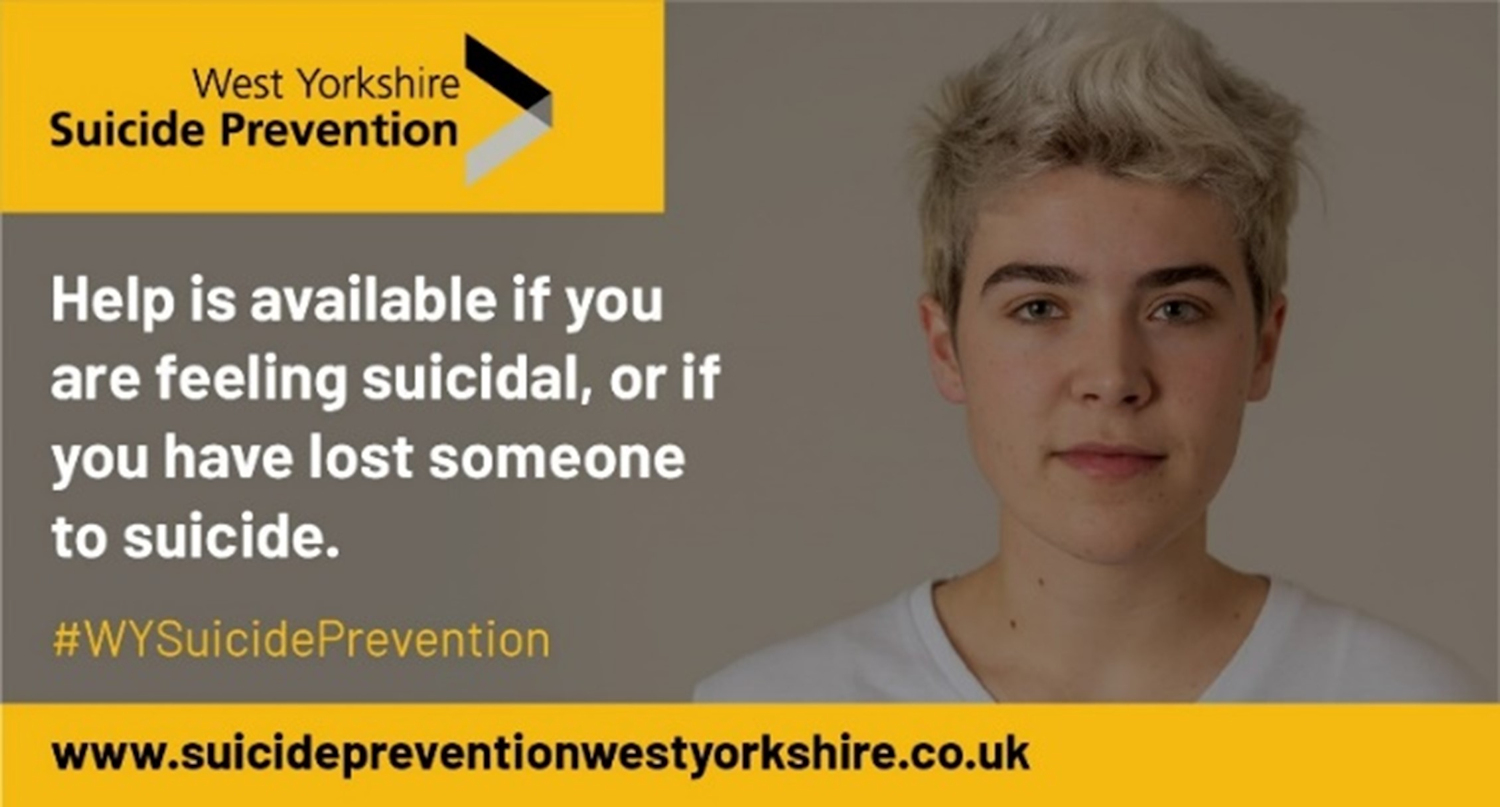 So, if you are reading this, what can you do? There are lots of things.
So, if you are reading this, what can you do? There are lots of things.
Can you take the time to do some suicide prevention training? Can you persuade your organisation to do the same? Completing training will help you to bust the stigma, know what to say if you think someone may be considering suicide, as well as increase your awareness of local support. Have a look at our easy-to-navigate online training guide.
Can you have a look at our language guide and think about sharing it among your friends, colleagues or teams as a tool to having a conversation about challenging stigma? Put it on the wall where you work?
Could you link to the West Yorkshire, or your local, suicide prevention network, with a view to becoming a suicide prevention ambassador in your work, life, or home? Contact us via the website and we will put you in touch with your local suicide prevention lead and add you to the West Yorkshire Suicide Prevention Network for updates.
Could you share any of the information on the WY Suicide prevention website, or sign up for newsletters on behalf of your team?
The average traffic to our website is on the rise – now attracting well over 2,000 hits per month. Bradford Council Public Health team also recently conducted some research into the use of the site, which found, as well as public use being on the increase, evidence also points firmly to it as a repository and resource for colleagues working across health, care and beyond. Can you take a look at the site and share it with colleagues or loved ones and your team?
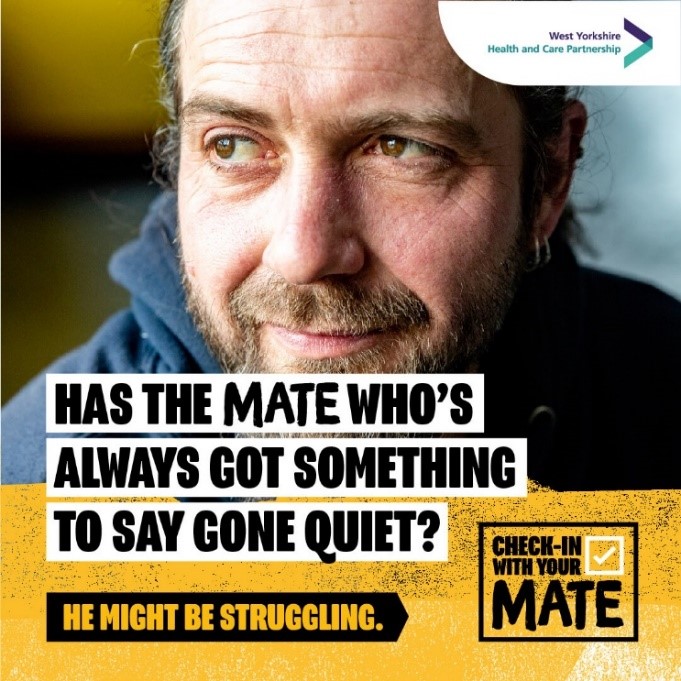 Could you share and use some of the resources of the male suicide prevention campaign ‘Check in With Your Mate’ – they are yours, not mine. You can download them all at www.
Could you share and use some of the resources of the male suicide prevention campaign ‘Check in With Your Mate’ – they are yours, not mine. You can download them all at www.
What about your organisation’s benchmarking in terms of your suicide prevention work – is training available to all staff? Is suicide risk on your team or organisational risk matrix and do you report to your Board on progress? How are you linking in organisationally with place-based suicide prevention networks? These are people who can help you to get this right for your organisation. Later on this year we will have new audits of inquests for each of our five local authorities which will give us even more insight into the complexities of suicide deaths and risks, as well as opportunities for prevention. How will you or your team link into the findings?
It has been an absolute privilege for us to develop the suicide prevention work across West Yorkshire over the last few years. In that time, achievements across West Yorkshire have included:
- Seeing hundreds of men in businesses across West Yorkshire learn about suicide and mental health through talks with ex-professional sportsmen;
- Funding a suicide prevention project across West Yorkshire with Gypsies and Travellers – a community at greater risk of suicide than the general population and other ethnic groups.
- Enabling West Yorkshire Suicide Bereavement Service to carry on delivering peer support to those who need it;
- Continuing to grow a network of change-makers – currently 435 and counting - from across West Yorkshire who will progress suicide prevention work and learning;
- Funding a coproduction project which continues to bring lived experience to the heart of all that we do. These volunteers’ work has included meeting with 999 and 111 call-handlers on dealing with crisis calls and creating films for healthcare staff on their experience of best practice - these will be launched soon, so watch this space;
- Commissioning a film called Leaving Service about veterans and mental health. Watch the key messages trailer.
- Securing a two-year investment in suicide prevention training, targeting specific cohorts of frontline staff most likely to come to come into contact with high-risk people.
- Seen three years of NHS England investment fund over 40 VCS organisations so far across West Yorkshire for suicide prevention work;
- Funded a position in West Yorkshire Police who immediately supports people bereaved by suicide and is key to future prevention work;
- New work in prisons is just starting, as the criminal justice system is a core risk factor for suicide;
- Next up we’re hoping to launch a campaign to recruit West Yorkshire Suicide Prevention Champions to help bust stigma and raise awareness across the area. This is all still in the planning process at the moment - so keep your eyes peeled for more. But anyone interested in becoming a Champion can get in touch now.
From Jess: I want to say a massive thanks to all of the people and organisations I have worked with over the last couple of years, particularly bereaved people who shared their thoughts and experiences with me, and the voluntary sector partners doing the day-to-day work of suicide prevention in our communities. As I move on to a new role, the call is for everyone reading this to think about whether there is anything you can do – no matter how small. All actions will make a difference and help us achieve our ambition, as the national and local climate continues to be so tough for so many.
Thanks, and have a great weekend,
Jo and Jess


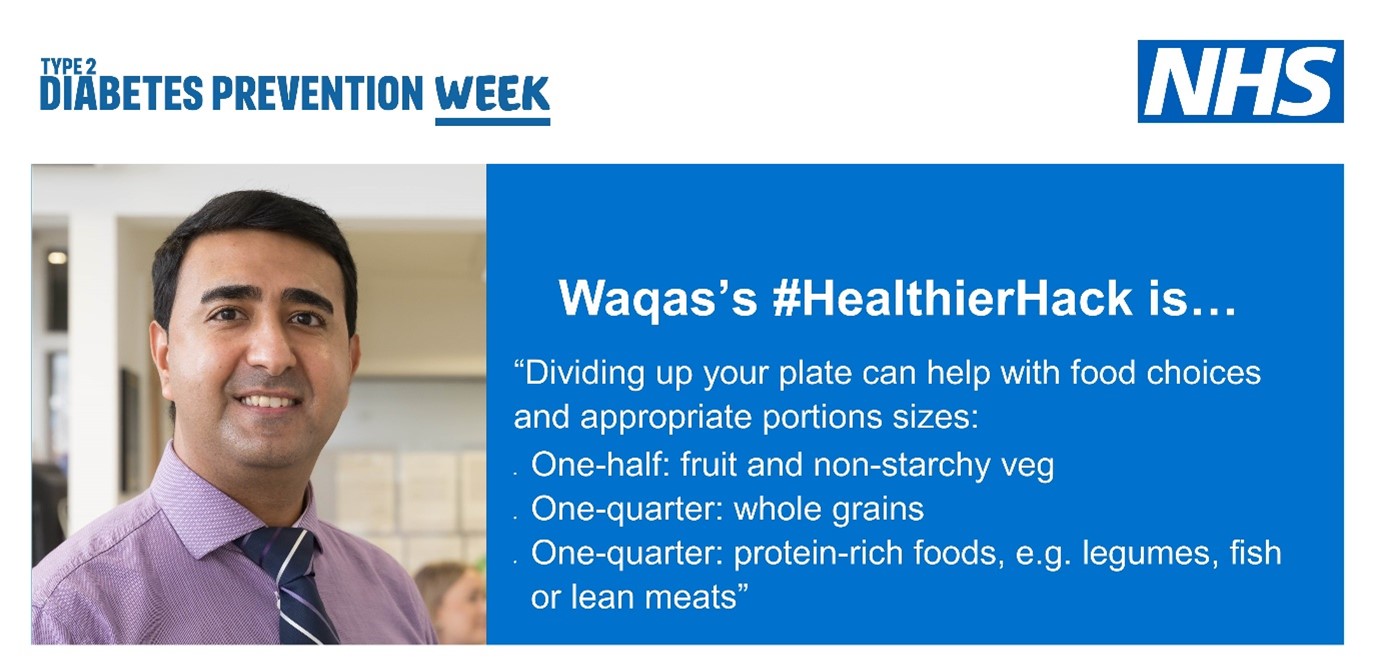
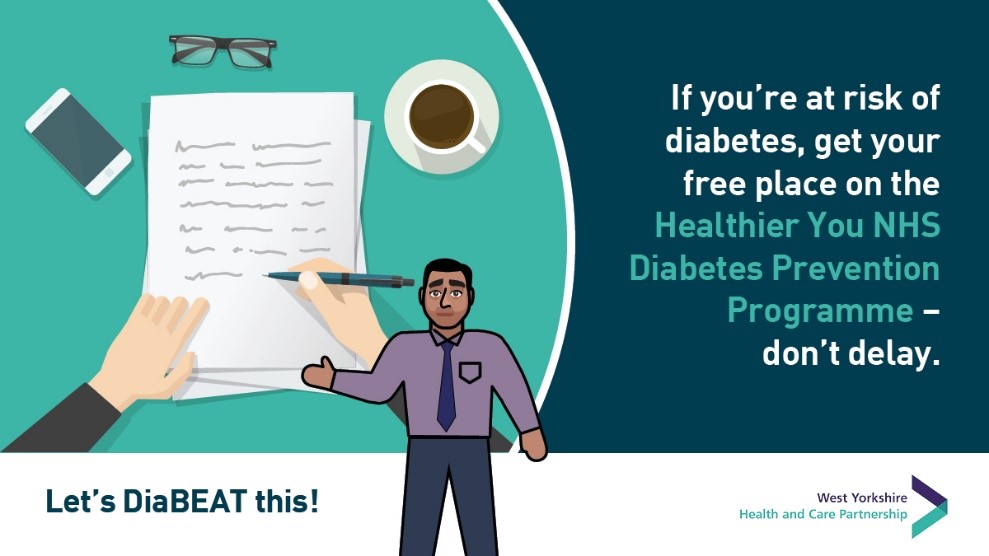 We’ve been keeping our foot well and truly on the accelerator with our Let’s DiaBEAT this campaign to make sure diabetes is high on everyone’s agenda. Boosting referrals to the NDPP and preventing the onset of the condition in the first place has been one of our main priorities. Since January this year, more than 1000 people each month have been referred to the programme across West Yorkshire. Working with our local integrated care colleagues (local authority public health teams and VCSE) enables primary care to offer and refer individuals to the National Diabetes Prevention Programme. Collaboratively we have developed a
We’ve been keeping our foot well and truly on the accelerator with our Let’s DiaBEAT this campaign to make sure diabetes is high on everyone’s agenda. Boosting referrals to the NDPP and preventing the onset of the condition in the first place has been one of our main priorities. Since January this year, more than 1000 people each month have been referred to the programme across West Yorkshire. Working with our local integrated care colleagues (local authority public health teams and VCSE) enables primary care to offer and refer individuals to the National Diabetes Prevention Programme. Collaboratively we have developed a 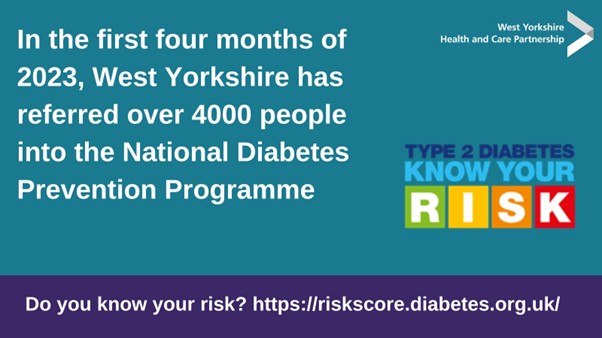 The NDPP provides people with a structured education programme over nine months via a peer support group, led by a skilled health coach. I have been attending the NDPP at Huddersfield Leisure Centre. I believe this to be a great venue because it gets me (and others attending the programme) into the centre. When at the leisure centre we can see the types of classes on offer, the gym equipment, and the swimming pool; and also find it reassuring that there are all types of people who go there to keep fit and stay healthy.
The NDPP provides people with a structured education programme over nine months via a peer support group, led by a skilled health coach. I have been attending the NDPP at Huddersfield Leisure Centre. I believe this to be a great venue because it gets me (and others attending the programme) into the centre. When at the leisure centre we can see the types of classes on offer, the gym equipment, and the swimming pool; and also find it reassuring that there are all types of people who go there to keep fit and stay healthy.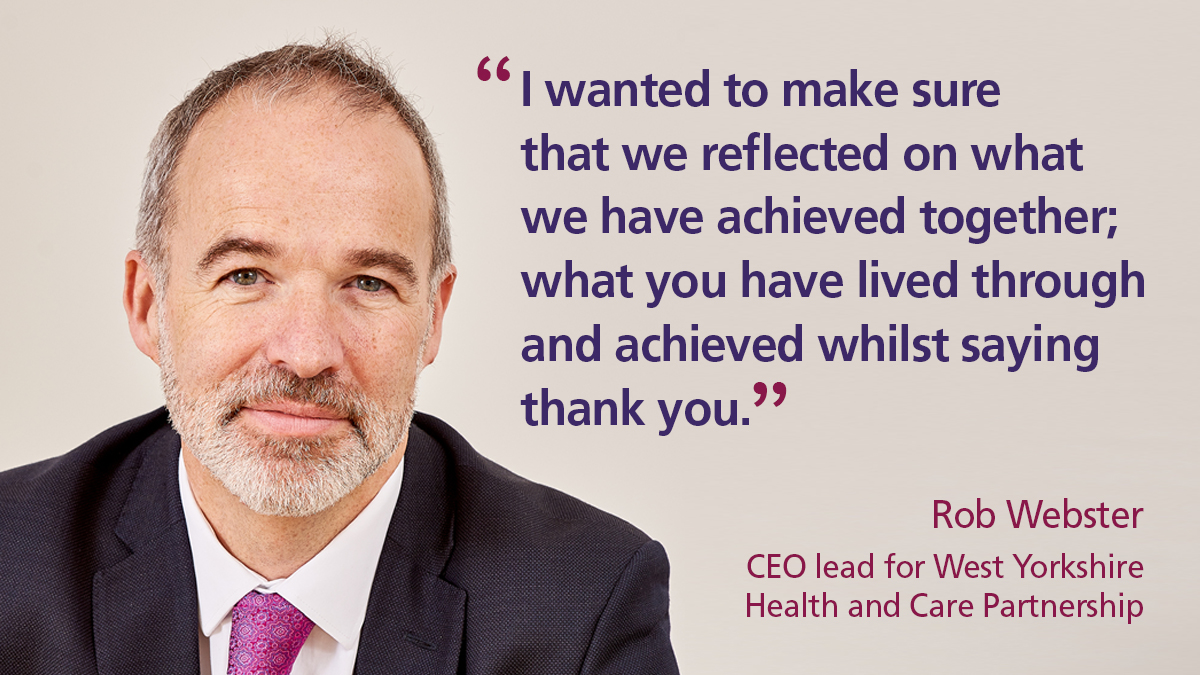 On 18 May the Board of NHS England announced that the NHS would be stepping down from its level three incident (regionally led) response to COVID-19. This came one year after the national level four incident was stepped down and follows The World Health Organisation’s recent announcement that COVID-19 is no longer a Public Health Emergency of International Concern.
On 18 May the Board of NHS England announced that the NHS would be stepping down from its level three incident (regionally led) response to COVID-19. This came one year after the national level four incident was stepped down and follows The World Health Organisation’s recent announcement that COVID-19 is no longer a Public Health Emergency of International Concern.
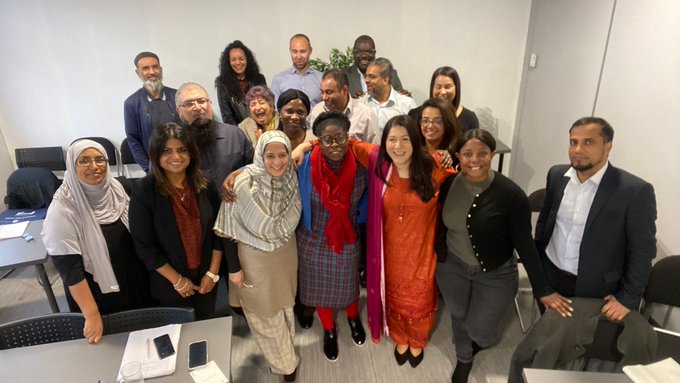 West Yorkshire’s Race Equality Network has been running since before the pandemic and has become a valued and award-winning, ‘voluntary’ forum operating within our West Yorkshire Health and Care Partnership. Equality and diversity has been a core priority for all organisations within the Partnership, features within the
West Yorkshire’s Race Equality Network has been running since before the pandemic and has become a valued and award-winning, ‘voluntary’ forum operating within our West Yorkshire Health and Care Partnership. Equality and diversity has been a core priority for all organisations within the Partnership, features within the 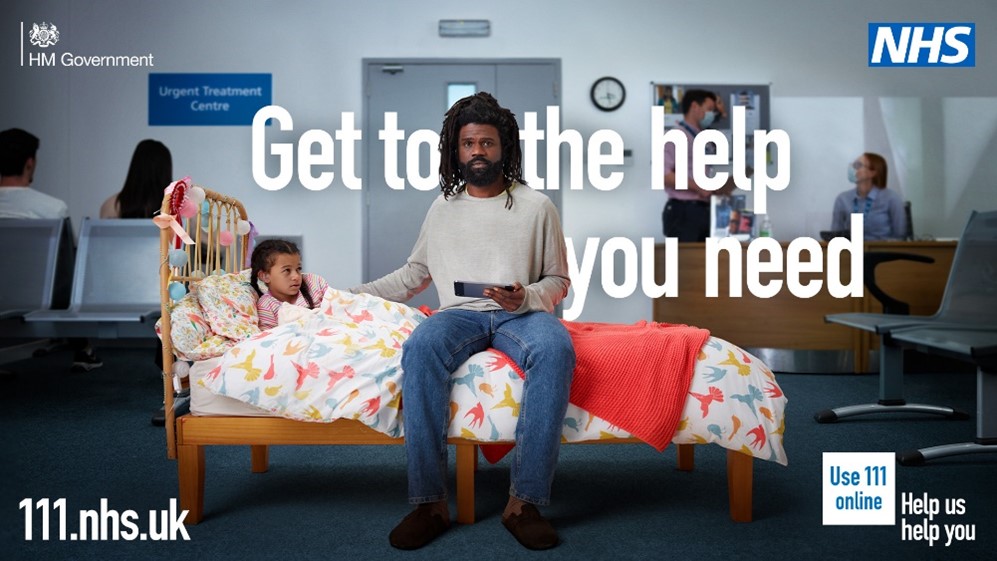 The spring bank holiday falls on Monday 29 May so it’s important that you are prepared and know how to get help if needed during this time. Many health and care staff will be working over the bank holiday period, but services are likely to be extremely busy. Please choose the right service for your needs if you need support during this time. If you take regular medication, check you have enough for the week ahead and if you need more, please order and collect before the bank holiday.
The spring bank holiday falls on Monday 29 May so it’s important that you are prepared and know how to get help if needed during this time. Many health and care staff will be working over the bank holiday period, but services are likely to be extremely busy. Please choose the right service for your needs if you need support during this time. If you take regular medication, check you have enough for the week ahead and if you need more, please order and collect before the bank holiday.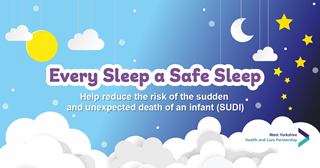 Around 70 trainers who work with parents and carers of babies aged 0-12 months joined an Every Sleep a Safe Sleep ‘train the trainer’ session on Tuesday. Attending the sessions helps to equip trainers with the skills to deliver the multiagency training to frontline colleagues to ensure they are able to effectively engage in individualised safer sleep conversations with parents and carers. The aim is to reduce the risks of sudden unexpected death in infancy (SUDI), in particular where additional vulnerabilities exist.
Around 70 trainers who work with parents and carers of babies aged 0-12 months joined an Every Sleep a Safe Sleep ‘train the trainer’ session on Tuesday. Attending the sessions helps to equip trainers with the skills to deliver the multiagency training to frontline colleagues to ensure they are able to effectively engage in individualised safer sleep conversations with parents and carers. The aim is to reduce the risks of sudden unexpected death in infancy (SUDI), in particular where additional vulnerabilities exist. Around 50 healthcare professionals joined a fully subscribed event in Leeds on 17 May aimed at tackling difficult and sensitive conversations with patients around obesity and being overweight - something which research locally has shown that practitioners struggle with.
Around 50 healthcare professionals joined a fully subscribed event in Leeds on 17 May aimed at tackling difficult and sensitive conversations with patients around obesity and being overweight - something which research locally has shown that practitioners struggle with.